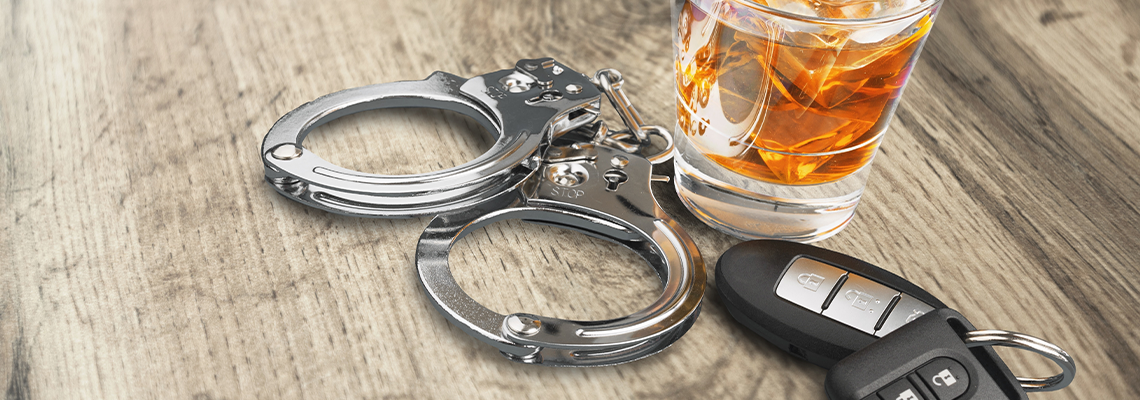Divorce in Iowa and across the United States can be a challenging experience, but when children are involved, the situation becomes even more complicated.

DUI Diversion Programs: Do You Qualify?
DUI diversion programs, often referred to as first-offender programs or DUI diversion agreements, offer an alternative route for those faced with first-offense DUI charges. Instead of following the conventional criminal justice process, these programs offer the chance for charges to be completely dismissed. However, this comes with a condition of successfully fulfilling specific requirements, such as undergoing substance abuse education or rehabilitation.
Qualification Requirements for Iowa OWI School
In Iowa, the Iowa OWI School is a specialized program designed for individuals convicted of first-offense operating while intoxicated (OWI). It serves as an alternative to incarceration and offers a weekend jail diversion option.
To be eligible for this program, you need approval from the court approval. Once approved, participants commit to 48 consecutive hours over a single weekend. During this time, they engage in mandatory Iowa Department of Transportation Drinking Drivers Education training. This comprehensive program aims to provide education and support to individuals while addressing the consequences of OWI offenses.
Benefits of the Program
Beyond avoiding harsher legal consequences, these programs also provide an avenue for addressing the root causes of the offense, seeking help, and making positive changes. This process can aid in overcoming the stigma that comes with a DUI offense.
The Penalties a Diversion Program Can Help You Avoid
A first-offense DUI can carry severe penalties that impact multiple avenues of your life. Here's what you might be up against:
Jail Time: A few days in jail is a typical penalty for a first-offense DUI. The exact duration can vary depending on the circumstances of the offense.
Fines: You could be facing thousands of dollars in fines. This financial burden can have significant implications for your personal and professional life.
License Suspension: Expect your driving privileges to be suspended for at least three months. This suspension could affect your ability to commute to work or fulfill other daily obligations.
Rehabilitation or Education Courses: Depending on your location, you might also be required to complete rehabilitation or alcohol and drug education courses. These programs aim to mitigate the risk of reoffending.
Criminal Record: One of the most concerning consequences of a DUI conviction is having a criminal record. This record could impact future employment opportunities and other aspects of your life.
Insurance Consequences: A DUI conviction can also lead to higher car insurance premiums. Some insurance companies might even drop your coverage altogether.
Ignition Interlock Device: In some cases, you might be required to install an ignition interlock device on your vehicle. This device prevents your car from starting unless you provide a breath sample free of alcohol.
Remember, every case is unique, and these penalties can vary based on the specifics of your situation.
Requirements for Passing Your Program and Getting Your Charges Dismissed
Let's delve into what these programs entail and what you need to do to have your charges dismissed.
Pleading Guilty
The first step in a DUI diversion program is an admission of guilt. Participants sign a document admitting their offense. This critical step shows a willingness to take responsibility for one's actions and is a prerequisite for entering the program.
Rehabilitation or Substance Abuse Education
A significant component of a DUI diversion program is either rehabilitation or substance abuse education. Participants must complete a program specifically designed to address their alcohol or drug dependencies. This process typically involves evaluations by a licensed therapist or counselor and adherence to a recommended treatment plan.
Sobriety Commitment
For a specific period, participants in a DUI diversion program must abstain from using alcohol or drugs. This commitment to sobriety is monitored closely and is an integral part of demonstrating a sincere desire to change.
Paying Fines or Fees
Usually, DUI diversion programs involve some financial commitment. Participants are required to pay fines or fees associated with the program.
The amount varies depending on factors like the severity of the offense and the specific program requirements.
Additional Requirements
There are also additional requirements that participants must meet. These may include community service, regular drug and alcohol testing, and possibly even installing an ignition interlock device (IID) on their vehicle.
Some participants may be required to attend a victim impact panel, providing an opportunity to understand the repercussions of DUI offenses firsthand.
Ask a Lawyer for Help
DUI laws and diversion programs can be a lot, but you don't have to do it alone. The attorneys at Balduchi Law Office, PC, Kent Balduchi and Austin Luse, are here to help.
Based in Des Moines, Iowa, and serving clients throughout Polk County and surrounding areas, they can offer guidance on eligibility requirements, explain your legal options, and assist you in making an informed decision about your circumstances. Remember, laws regarding DUI and diversion programs can vary by state, and each situation is unique. So, don't hesitate to reach out to a criminal law attorney for professional advice.
RECENT POSTS
Repeat DUI convictions under Iowa law carry steeper fines, longer license suspensions, and mandatory jail terms than first offenses. Balduchi Law Office, PC in Des Moines, Iowa, advises clients facing repeat DUI charges on how to pursue every available avenue for reducing penalties.




